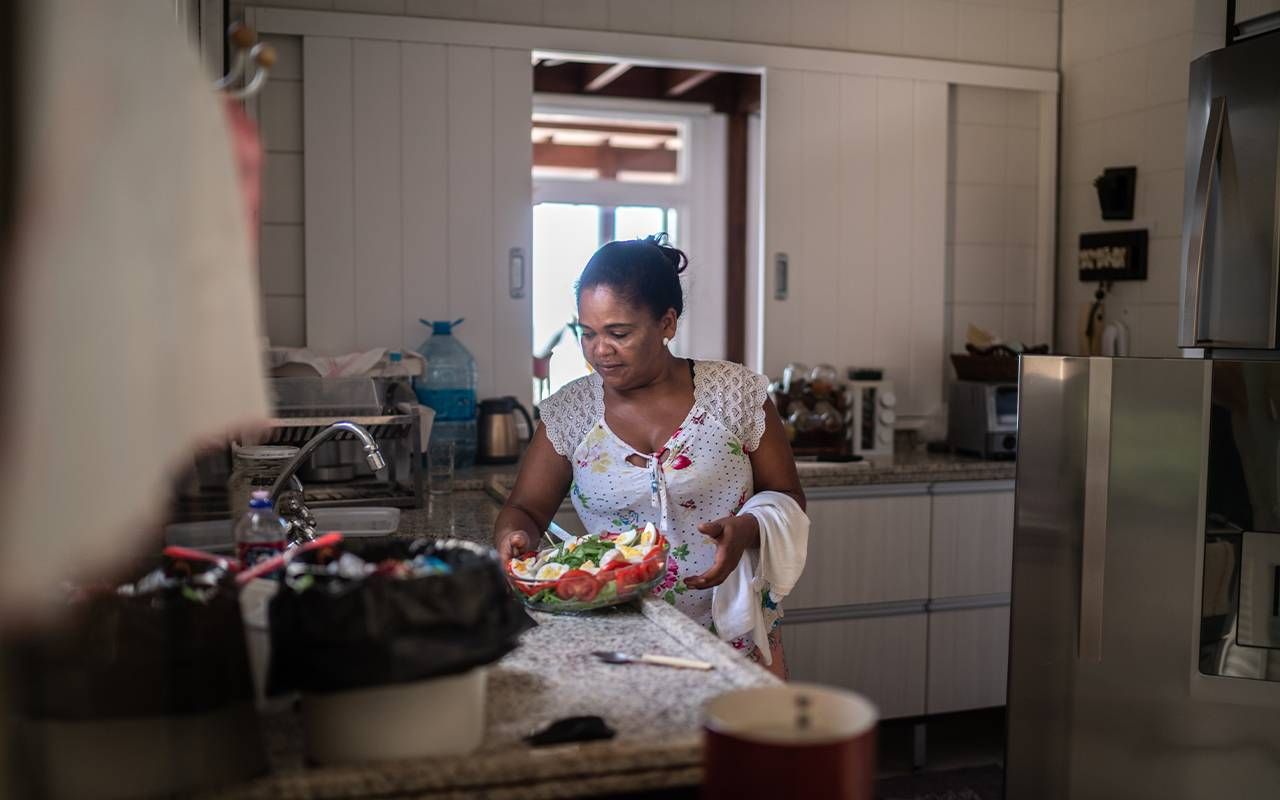8 Tips from Experts on Breast Cancer Prevention
October is Breast Cancer Awareness Month. Here are suggestions on steps to take to decrease your risk for developing the disease.
Shortly after Maggie Gama, M.D., a pathologist and functional medicine physician at Temecula Center of Integrative Medicine in California, started medical school, her mother was diagnosed with breast cancer. It wasn't genetically driven. There was no known inherited mutation. Gama's reaction: to pursue a career in functional medicine where she could help people sidestep — and survive —cancer and its treatments.

"Only about 5 to 10% of breast cancers have a genetic link," Gama says."That means more than 90% of breast cancers are caused by DNA damage and mutations that happen throughout our lifetime."
"More than 90% of breast cancers are caused by DNA damage and mutations that happen throughout our lifetime."
Whether you have a genetic susceptibility to breast cancer or not, experts say there are things you can do to reduce your risk of developing the disease.
1. Avoid Toxins
We are all living in a sort of toxic soup, from the foods we eat, to the cleaning supplies we use, to the cosmetics and skin care products we slather on our skin. For cancer prevention, Santosh Rao, M.D., an integrative oncologist at University Hospitals Seidman Cancer Center in Arizona, emphasizes the importance of minimizing exposure to environmental carcinogens and choosing organic foods whenever possible.
Expert tip: Download the Environmental Working Group's Healthy Living App. This easy-to-use app scans the barcodes of cleaning supplies, sunscreen, cosmetics and skincare products and rates them according to the toxicity of their ingredients.
2. Ditch the Underwire
There isn't much funding out there for bra research. But according to Gama, women tend to hold stress in their breasts, and underwire bras trap it there.
"We're all putting a tourniquet around our chests daily and that doesn't allow for lymph fluid, our body's natural waste transport mechanism."
"I would love to see a bra company fund a trial," Gama says, "but logically, we're all putting a tourniquet around our chests daily and that doesn't allow for lymph fluid, our body's natural waste transport mechanism, to drain efficiently."
Expert tip: Swap your underwire bras for cotton camisoles if small-chested or underwire-free supportive bras if on the larger side.
3. Check Your Nutrient Status
While the link between vitamin D deficiency and an increased risk of breast cancer is well-established, less discussed is the idea that other micronutrients, particularly antioxidant vitamins including A, C, E, and B vitamins, play a role in suppressing tumor growth.
In a 2023 study published in the International Journal of Molecular Science, researchers emphasized the importance of antioxidant vitamins for cancer prevention.
Expert tip: Ask your doctor to test your vitamin D and micronutrient levels. Work with a functional medicine physician to ensure you get the nutrients you need for optimal functioning.
"Some people have more trouble repairing DNA than others, even if they don't have any known mutations," says Gama. "That's why it's important to get tested."
4. Limit Estrogen Exposure
About 80% of breast cancers are estrogen receptor-positive, meaning the cancer is fueled, at least in part, by estrogen. "Being exposed to estrogen through extended oral contraceptive use or long-term hormone replacement therapy may increase breast cancer risk," Rao says.
Unfortunately, with increasing exposure to environmental estrogens, post-menopausal women may have excess estrogen circulating in their systems.
Expert tip: Load up on broccoli, kale, cauliflower and other cruciferous vegetables. "These foods help your body naturally detox estrogen," Gama says.
5. Go Dry
Sadly, your daily glass of red may not be doing you any favors on the cancer prevention front. According to the National Cancer Institute, even moderate amounts of alcohol are linked to a higher risk of breast cancer, particularly the hormone-sensitive type most women get.
"We have something called 'clock genes' in every cell that can turn on or off genes that are cancer promoting."
There's also evidence to suggest that alcohol damages DNA and inhibits DNA repair. "The more you drink, the higher the risk," Rao says.
Expert tip: Take stock of your drinking habits and ensure you sip only one 5-ounce glass of wine (or one 12-ounce beer) daily. Better yet, cut out booze entirely.
6. Release Built-Up Trauma
When Gama meets a new breast cancer patient, one of her first questions is: What was happening for you emotionally two to three years ago?
"More often than not, they experienced a very stressful or traumatic event a few years prior to their diagnosis," she says. Emerging research suggests that patients also believe childhood trauma and stressful life experiences played a role in their development of the disease.
Expert tip: Work with a therapist to address unresolved grief and trauma and practice stress-reducing activities like mindfulness, breath work, meditation, and even a nightly Epsom salt bath.
"Unfortunately, so many women have been traumatized," says Rao. "And chronic stress and trauma can impact immune function."
7. Get Sufficient Sleep
According to Rao, both the timing and quality of sleep impact your body's ability to repair damaged cells and fight off pathogens. "We have something called 'clock genes' in every cell that can turn on or off genes that are cancer promoting," Rao says.
"Plus, there are metabolic changes that happen if you don't sleep and wake at regular times, including changes in body composition and immune function that are implicated in cancer."
Expert tip: Wake up and go to bed at the same time every day, even on weekends. Ensure your room is quiet, dark and cool when it's time to turn in. And shut down your devices at least 2 hours before snooze time because, like it or not, studies show that scrolling against the backdrop of blue light from our devices emit can impact our sleep quality.
8. Pay Attention to Your Gut
The lion's share, about 80%, of your immune system resides in your gut. "Eating a whole food, anti-inflammatory diet that includes plenty of fruits and vegetables can help support your microbiome," Rao says. "It's about eating mindfully and getting in touch with what your body really needs to function optimally."
Expert tip: Limit processed and refined sugars (both can lead to gut inflammation), and instead of popping probiotics in pill form, populate your gut with healthy bacteria by loading up on foods that not only fuel your body but also feed the good bacteria in your gut, such as plain Greek yogurt, kefir, sauerkraut, almonds, greens, bananas, garlic and whole grains.
Of course, none of these on its own, or in combination, can guarantee a person won't develop cancer. Indeed, if we lived to be well over 100 years old, most of us would.
But in an era filled with choices we get to make daily about what we consume and how we choose to live, knowing how to set ourselves up for the best shot possible — come what may — is a sound strategy.


